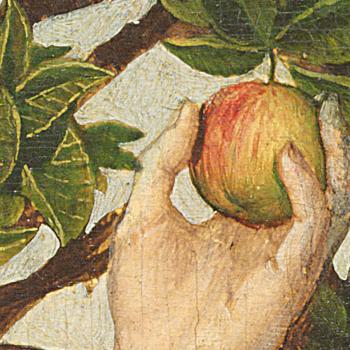
When I look back at some of the dumb stuff I’ve said and done in my adult life, it’s tempting to wince. I’m not just talking about selfish choices, but attitudes I held for years, jokes I thought were harmless but which were, in fact, hurtful, moments where I let people I love down, and far, far more. The list is endless, but I don’t mean this in a self-critical way. To put it simply, we are all fools, and can either regard our younger selves with criticism or smile wryly and extend grace. Kindness greases the wheels, allowing us to accept our younger selves, as well as those around us making the same choices we once made.
In my early twenties I was a fanatic. Driven by personal pain, I forged a new identity in spirituality. I was over-serious, intense, and carried a hard edge when it came to theology, causing friction in environments where I could have just settled in and belonged. I remember attending my parents’ cell group one night, a short while after returning from missionary work. One of the older chaps there was a lovely bloke called Jim, who’d faithfully written monthly letters to me over the course of the years I spent overseas.
That night, Jim interpreted a Bible verse in a way I passionately believed undermined the gracious message of the text. The fanatic in me rose up and I responded with fire, demonstrating why the interpretation he’d given couldn’t possibly reflect the passage, before offering an alternative. The room fell quiet, and my poor parents did their best to hide their embarrassment (Lord bless them, I’ve put them in positions like this far too many times, and to their enormous credit, they didn’t intervene, even when my underpants were showing in public!). Jim seemed rather taken aback, but the tension dissipated when the oldest chap in the room began to chuckle.
Albert Dent was an octogenarian, who sang extremely loudly in church services, with a long, quivering vibrato and a tendency to issue thunderous plosives at the end of words, particularly if it was the last word in the hymn. He was a distant figure to me; someone I saw as stern and had no real relationship with.
“Ah, the zeal of youth!” he exclaimed. “We could all do with more of that!”
I was being a jackass, but Albert chose to affirm me. I knew Albert wouldn’t have agreed with my point of view, as our theological perspectives were at considerable odds, but he’d seen past the theology and even the arrogance, identifying the treasure at the heart of a person instead. His kindness meant the world to me in that moment, and taught me two lasting lessons:
- That kindness is far more important than theology.
- That we can choose to see the best in people, even when they’re demonstrating less admirable qualities.
It’s commonly said that there’s nobody more judgemental about smokers than an ex-smoker. This is probably unfair on ex-smokers, but the point is a good one – it’s easy to judge those who are caught up in damaging behaviour we used to engage in ourselves. When I come across a young Christian being overly forceful about their theology, the Spirit of Slap rises up in me, but then I remind myself of Albert Dent and choose to see the best in them.
There’s no excuse for judging people, especially when they’re only doing what we’ve done in the past. On reflection, I’ve been a fool at pretty much every stage of life, and will no doubt look back on this particular stage and think the same, but this is no reason to judge or reject myself. There’s no dress rehearsal for life and mistakes are inevitable. Learning is messy and growth can be painful. Rather than punish ourselves for past imbalances, let’s take ourselves less seriously. Let’s show kindness to our younger selves, and to anyone else going through idiotic stages we’ve already been through. In other words, let’s be more like Albert Dent, for whom I’ll always be grateful!
For any reader wanting to explore the topic of judgement in more depth, I’ve written a book called Who Am I to Judge under the pen name James Bewley. The text explores the nature of judgement, from judging ourselves to judging others to judging God. What is judgement and why is it so harmful? How do we live free of judgement and embrace mercy instead?












